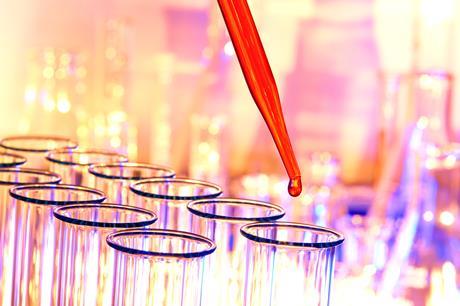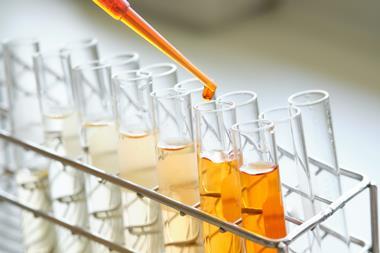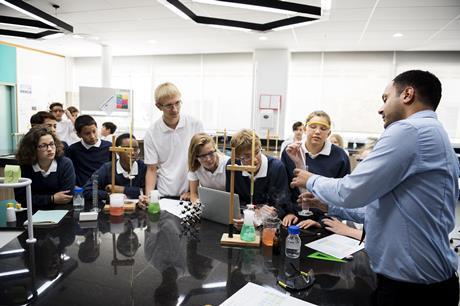- Home
- I am a …
- Resources
- Collections
- Remote teaching support
- Starters for ten
- Screen experiments
- Assessment for learning
- Microscale chemistry
- Faces of chemistry
- Classic chemistry experiments
- Nuffield practical collection
- Anecdotes for chemistry teachers
- Literacy in science teaching
- More …
- Climate change and sustainability
- Alchemy
- On this day in chemistry
- Global experiments
- PhET interactive simulations
- Chemistry vignettes
- Context and problem based learning
- Journal of the month
- Chemistry and art
- Classic chemistry demonstrations
- In search of solutions
- In search of more solutions
- Creative problem-solving in chemistry
- Solar spark
- Chemistry for non-specialists
- Health and safety in higher education
- Analytical chemistry introductions
- Exhibition chemistry
- Introductory maths for higher education
- Commercial skills for chemists
- Kitchen chemistry
- Journals how to guides
- Chemistry in health
- Chemistry in sport
- Chemistry in your cupboard
- Chocolate chemistry
- Adnoddau addysgu cemeg Cymraeg
- The chemistry of fireworks
- Festive chemistry
- Collections
- Education in Chemistry
- Teach Chemistry
- Events
- Teacher PD
- Enrichment
- Our work
- More navigation items
Chemistry for science teachers
Boost your confidence in delivering practical work, and develop the skills you need to teach key chemistry topics to 11–16 year olds.
This course is designed for teachers looking to build their knowledge and confidence in teaching chemistry. The course is comprised of three optional modules, covering teaching strategies for different topic areas.
At a glance
- Upcoming dates:
Tuesdays and Wednesdays, Jan–March 2026, 3.45–5.30pm - Cost: Free for Teach Chemistry members
- Session frequency: Weekly
Choose a module to get started

Module 1
Upcoming dates
Tuesdays, January–March, 6.45–8.30pm
Topics covered
- Supporting good practical chemistry
- Reactivity of metals
- Electrolysis
- Quantitative chemistry

Module 2
Upcoming dates
Wednesdays, January–March, 3.45–5.30pm
Topics covered
- Identifying unknowns
- Equilibrium
- Energy changes
- Rates of reaction

Module 3
Upcoming dates
Not currently available – get notified when new dates are added
Topics covered
- Structure and bonding
- Hydrocarbons
- Acids and bases
- Further quantitative chemistry

Module 1
Module 1 covers the following topics:
- Supporting good practical chemistry
- Reactivity of metals
- Electrolysis
- Quantitative chemistry
You’ll build your subject knowledge across these topics, explore common misconceptions and develop ideas for practical activities.
Upcoming dates and registration
Module 1 – spring term
Tuesdays, January–March 2026, 3.45–5.30pm, online
You’ll need to be a member of Teach Chemistry to register for this course. Sign in now or register for an account today to get started.
REGISTER FOR MY ACCOUNT Sign in
Session 1: Tuesday 20 January 6.45–8.30pm
Supporting good practical chemistry
- Particle theory of matter
- Ideas for practical work
- The meaning of hazard, harm and risk
- Process and recording of risk assessments
Session 2: Tuesday 3 February 6.45–8.30pm
Reactivity of metals
- Reactivity series of metals
- Ideas for practical activities
- Student misconceptions
Session 3: Tuesday 24 February 6.45–8.30pm
Electrolysis
- Electrolysis
- Student misconceptions
- Ideas for practical work
- RSC resources, including practical videos
Session 4: Tuesday 10 March 6.45–8.30pm
Quantitative chemistry
Session topics:
- Quantitative chemistry and the mole
- Chemistry calculations
- Linking practical work to calculations

Module 2
Module 2 covers the following topics:
- Identifying unknowns
- Equilibrium
- Energy changes
- Rates of reaction
You’ll build your subject knowledge across these topics, explore common misconceptions and develop ideas for practical activities.
Upcoming dates and registration
Module 2 – spring term
Wednesdays, January–March 2026, 3.45–5.30pm, online
You’ll need to be a member of Teach Chemistry to register for this course. Sign in now or register for an account today to get started.
REGISTER FOR MY ACCOUNT Sign in
Session 1: Wednesday 21 January 3.45–5.30pm
Identifying unknowns
- Chromatography, the background science, teaching approaches and models/analogies.
- Using chemical tests to identify ions
- RSC resources including gridlocks
- Student misconceptions
- Ideas for practical work
- Solubility and precipitation
Session 2: Wednesday 4 February 3.45–5.30pm
Equilibrium
- How to teach equilibrium
- Student misconceptions associated with equilibrium
- Ideas for practical work
- RSC resources including gridlocks
Session 3: Wednesday 25 February3.45–5.30pm
Energy changes
- A range of exciting demonstrations and consider their role in learning
- Ideas for teaching energy changes
- RSC resources linked ot energy changes and other demonstrations
Session 4: Wednesday 11 March 3.45–5.30pm
Rates of reaction
- Rates of reactions
- Data handling and interpretation
- Misconceptions
- RSC resources

Module 3
Module 3 covers the following topics:
- Structure and bonding
- Hydrocarbons
- Acids and bases
- Further quantitative chemistry
You’ll build your subject knowledge across these topics, explore common misconceptions and develop ideas for practical activities.
Upcoming dates and registration
Module 3 is not due to run in the spring term
However, you can still:
- Sign up to hear about new dates when they become available
- Check out and register for module 1 or module 2
Additional information
This course is most suited to teachers who may be:
- relatively new in post
- teaching chemistry outside their own subject specialism
- keen to increase their own understanding and confidence to teach chemistry within a 11–16 secondary science programme
Each module comprises a series of four sessions, held weekly or monthly, depending on the term. By completing all four, you will qualify for a certificate of attendance to add to your professional development portfolio/record.
In advance of the module, we will give you information on 1–2 practicals, which we will ask you to carry out prior to the relevant session, ready to discuss with your facilitator and fellow participants.
Support from your subject or school leadership team is a critical factor in successful professional development. When you sign up for a module, we’ll ask you to provide details of a senior member of staff who is responsible for your professional development provisions, eg head of chemistry/department, assistant headteacher, headteacher etc.

FAQs
Who is this course for?
This course is suitable for teachers in all career stages. The course expects a basic level of subject knowledge and are ideally suited if you are new to teaching chemistry; you have recently focused on another subject and would like to boost your knowledge; or you are returning from a teaching break.
The course is not suitable for trainee/student teachers in the first two terms of their training year.
Do I have to complete all modules?
You do not have to complete one module to attend another. Each module covers teaching strategies for different topic areas. Please choose the module that includes the topics most relevant for you.
How much does the course cost?
Nothing at all! The course is free to join, although places are limited. (If the course wasn’t fully funded it would cost £250!)
Is this course recognised? Will I receive a certificate?
Absolutely. The course is recognised CPD, so you will receive a certificate of attendance for your professional development portfolio/record once you have completed all of your chosen course’s sessions.
To qualify for the certificate of attendance, you must attend all sessions and complete all required tasks.
Do you record the sessions?
No, course modules are not recorded. If you are not available for the course dates currently advertised, watch this space – most courses are run regularly.











